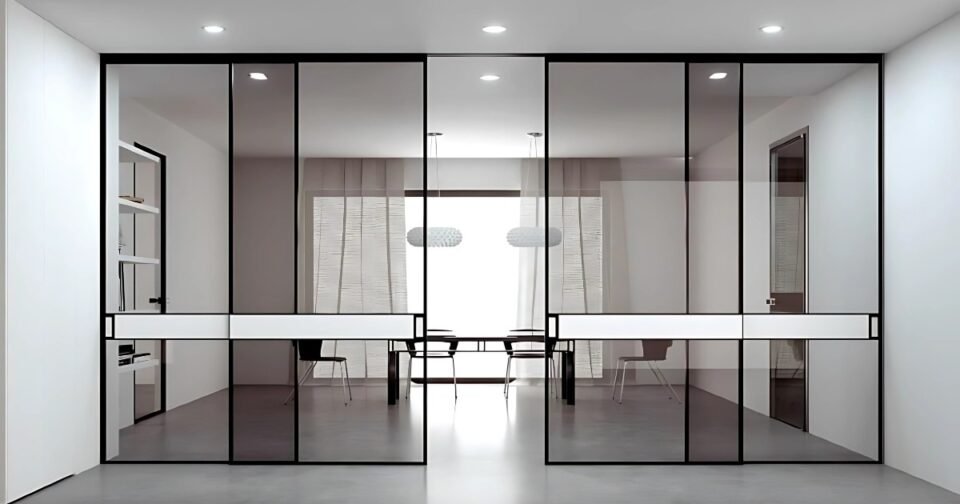Imagine a dynamic, lively workplace, a fashionable restaurant with flexible rooms, or a stylish house. These elegant glass walls divide the space, allowing light in while magically blocking noise or creating quiet zones. When should they open up? They float away quietly and easily. It seems easy, right? Glass on a track. That smooth, gorgeous operation? Quietness when closed? Instead of magic, that’s sophisticated engineering behind the scenes.
Beyond Glass: The Quiet Revolution
Premium sliding glass walls manage space, light, and sound, not just structural aspects. Their transparency and contemporary design are clear, but their actual worth frequently rests in their capacity to modify surroundings without interruption. Consider holding a concentrated meeting adjacent to a noisy common area or constructing a private dining corner in a restaurant. This is where glass partitions excel. However, having heavy glass panels slide smoothly and silently and seal firmly enough to exclude noise when closed are huge obstacles. Like making a moving acoustic wall.
Air Gliding: Precision Hardware
What gives them their almost miraculous glide? The track and roller system is anything from simple. Precision-engineered sliding door tracks replace rattly old ones. High-quality aluminum rails are extruded precisely and integrated discreetly into ceilings or floors for a clean finish. Complex roller assemblies with high-duty bearings and nylon or polyurethane wheels are needed to support thick glass panels. They are selected for their low friction and noise-dampening characteristics as well as their strength and longevity. They uniformly distribute the panel’s weight, minimize rolling resistance, and provide smooth, steady, and quiet movement.
Noise Control: Acoustic Mastery
Maybe the hardest aspect is making a glass wall quiet when closed. Advanced sealing technology helps here. Hi-performance partitions have multi-layered sealing at the top, bottom, and between panels. They’re not thin rubber strips! They use specially engineered gaskets, brushes, and mechanical or inflatable seals. These seals compress firmly against the track, floor, and neighboring panels utilizing interlocking profiles or automatic processes when the partition is completely extended. Sound transmission is greatly reduced by this continuous, high-pressure barrier. These seals have specified densities and compositions to absorb and block sound waves, greatly enhancing the partition’s Sound Transmission Class (STC) rating and providing acoustic privacy.
Built Right: Materials and Workmanship
High-quality materials and production are needed for smooth operation and soundproofing. Laminated glass, with its interior interlayer, dampens sound waves better than monolithic tempered glass. Besides being structural, frame and track aluminum’s density and profile reduce resonance. These systems are also manufactured with strict tolerances. To achieve perfect alignment and functioning, every component, from the tiniest bearing to the longest track length, must be manufactured precisely. Precision machinery components, where every millimeter counts for long-term performance and a quiet, smooth feel, are more like this than mass-market manufacture.
Peaceful Divide: Modern Space Impact
This secret engineering, clever tracks, quiet rollers, high-performance seals, exact materials—creates a transformational product. A partition that looks excellent and operates well every day is the outcome. It immediately transforms environments from open and collaborative to private and concentrated without the noise or effort of less advanced systems. Modern workplaces need flexibility and quiet focus zones, so this capacity to discreetly establish a tranquil separation is vital. It reduces distractions, boosts productivity, and provides advanced functionality that people enjoy without understanding the tech behind it. It shows how invisible technology may transform our constructed surroundings.

